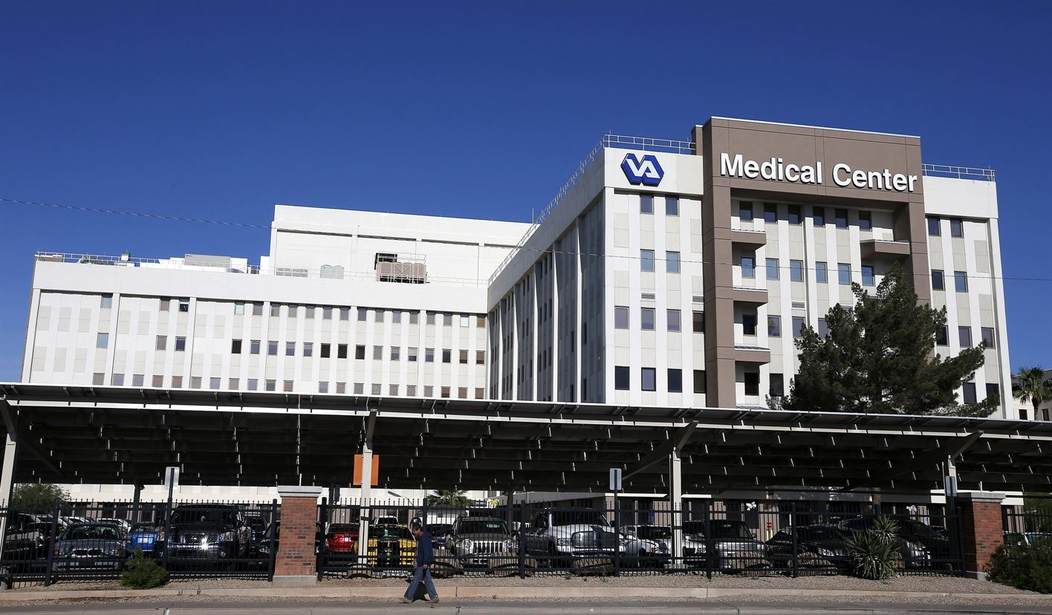In this week’s Democratic debate, presidential contenders sparred about nearly every recent news headline, focusing on rhetoric while stopping short of diving into specific policy solutions. We now know about their surprising friendships, but still, lack insight into how they would handle the issues that millions of Americans discuss at kitchen tables across the country. One of those issues: health care access for veterans.
Veterans issues received less than a minute of airtime—a brief mention of marijuana usage in a broader question about opioid abuse—yet the Department of Veterans Affairs (VA) shortcomings remain a major hurdle that millions of former servicemembers need to overcome.
This year marks five years since the news broke that veterans were dying on secret waitlists, waiting up to 90 days to see a doctor if they even saw one at all. When a veteran is sick or in crisis, any wait can be a matter of life and death, and while there has been some improvement, wait times to see a provider can still extend up to 70 days in some areas.
The veteran suicide rate is alarmingly high, and many others face physical and mental trauma that will stay with them a lifetime. Imagine serving your country and experiencing physical or mental injuries that require extensive medical care, then being told that you’re just a number in a very long line waiting for care.
Much of the conversation on veteran’s health reforms center on timeframes and funding. While these are necessary areas of focus, they take time and veterans need support now. It’s time to step up, think outside of the box, and use existing technology to better care for our heroes. Telemedicine, or telehealth, is one area where public and private organizations can open up the market so veterans have more choices.
Consider veterans living in rural areas or areas with less-than-stellar options—getting to VA clinics can be difficult. Telemedicine offers additional opportunities to talk to their doctors and access services from the comfort of their own community. Mental health support could be available at the touch of a button rather than a long commute—why wait for care when you could talk to your doctor through an app or on your computer?
Recommended
The Department introduced its own remote care option and it’s proving popular, with more than a million veterans accessing VA’s telehealth services in Fiscal Year 2018 alone. And, last year, Congress passed a law that authorizes VA to further expand this program and provide telehealth services across state lines. This is promising, and the administration has already begun taking the opportunity to move the ball forward by expanding patient options.
Telehealth and telemedicine can be a cost-effective method to increase access and deliver high-quality care by many practitioners, including nurses and nutritionists—not just doctors. However, currently, only licensed doctors can provide remote care through the VA. Expanding telemedicine to more types of practitioners will make it easier for veterans to access world-class experts, receive follow-up care, or get a quick second opinion, reining in wait times and lowering costs in the process.
Private companies and organizations have seen the value of telehealth and are stepping in to help fill some of the gaps created by the government’s overseeing of veterans’ health care. In Austin, one of the hotbeds for the 2014 scandal, boutique medical company Medici is offering veterans access to their services for free on Veterans Day through Operation 11/11.
This one-day program will allow veterans to access doctors in all 50 states ranging from general practitioners and dermatologists to orthopedic doctors and psychiatrists with an app on their phones.
There is no need to reinvent the wheel here. App-based and boutique health care options are available to Americans across the country and should be to our veterans. They can be used to cut red tape, help the VA stay within budget, and—most importantly—help our veterans get the care they earned and need.
Rather than glossing over the topic, I wish the Democrats used their platform to cover this on Tuesday night.
Whitney Munro is the vice president of communications at the Foundation for Government Accountability.

























Join the conversation as a VIP Member